NEW
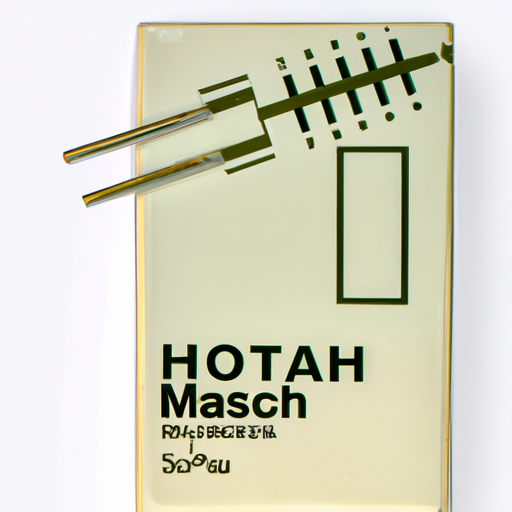
Core Functional Technology Articles on MM74HC373N Arrays and Signal Transformers 1. **Understanding the MM74HC373N: A High-Speed Octal Latch**
- **Overview**: The MM74HC373N is an octal transparent latch designed for high-speed applications, making it ideal for data storage and temporary data holding. It operates within a wide voltage range and is compatible with TTL logic levels, ensuring versatility in various electronic designs.
- **Key Features**:
- **Eight Latches**: Contains eight latches with a common enable input, allowing for simultaneous data handling.
- **High-Speed Operation**: Propagation delays as low as 15 ns enable rapid data processing, crucial for high-performance applications.
- **Low Power Consumption**: Its efficient design makes it suitable for battery-operated devices, enhancing energy efficiency.
- **Applications**: Commonly used in data storage systems, temporary data holding for microcontrollers, and interfacing between different logic families, facilitating seamless communication in mixed-technology environments. 2. **Signal Transformers: Essential Components for Signal Integrity**
- **Overview**: Signal transformers are vital for maintaining signal integrity across various applications, including telecommunications, audio systems, and data transmission. They help mitigate issues such as noise and signal degradation.
- **Key Features**:
- **Electrical Isolation**: Provides necessary isolation between circuits, protecting sensitive components from voltage spikes and interference.
- **Impedance Matching**: Ensures maximum power transfer and minimizes signal reflections, which is critical in high-frequency applications.
- **Frequency Response**: Designed to operate effectively over a specified frequency range, ensuring reliable performance in diverse applications.
- **Applications**: Widely used in audio equipment to prevent ground loops, in networking devices for data integrity, and in RF applications to enhance signal clarity. Application Development Cases 1. **Data Acquisition Systems Using MM74HC373N**
- **Case Study**: A data acquisition system was developed for environmental monitoring, utilizing the MM74HC373N to latch data from multiple sensors.
- **Implementation**:
- Sensors output data to the latches, which hold the data until it is read by a microcontroller, allowing for efficient data management.
- The transparent latch feature enables real-time data acquisition without data loss, ensuring that the system captures accurate readings.
- **Outcome**: The system demonstrated improved data reliability and reduced latency in data processing, leading to more timely and accurate environmental monitoring. 2. **Signal Isolation in Audio Systems with Signal Transformers**
- **Case Study**: An audio system was designed to eliminate ground loops and noise using signal transformers, enhancing overall audio quality.
- **Implementation**:
- Signal transformers were strategically placed between the audio source and the amplifier to isolate the two components, effectively preventing hum and noise from affecting audio clarity.
- This setup allowed for a cleaner signal path, minimizing interference from external sources.
- **Outcome**: The audio system achieved enhanced clarity and reduced interference, resulting in a significantly improved listening experience for users. 3. **Communication Systems Utilizing MM74HC373N and Signal Transformers**
- **Case Study**: A communication system was developed for a remote monitoring application, integrating both MM74HC373N and signal transformers to ensure reliable data transmission.
- **Implementation**:
- The MM74HC373N was employed to latch incoming data from various sensors, while signal transformers ensured signal integrity over long distances, addressing potential issues with signal degradation.
- This combination allowed for robust data transmission and reception, even in challenging environments.
- **Outcome**: The system achieved reliable communication with minimal data loss and high fidelity, making it suitable for critical monitoring applications. Conclusion
The MM74HC373N and signal transformers are integral components in modern electronic applications, providing essential functionalities for data handling and signal integrity. Their ability to efficiently manage data and maintain signal quality makes them indispensable across various fields, from consumer electronics to industrial systems. Understanding their functionalities and applications can lead to innovative solutions and advancements in technology development, paving the way for more efficient and reliable electronic systems.
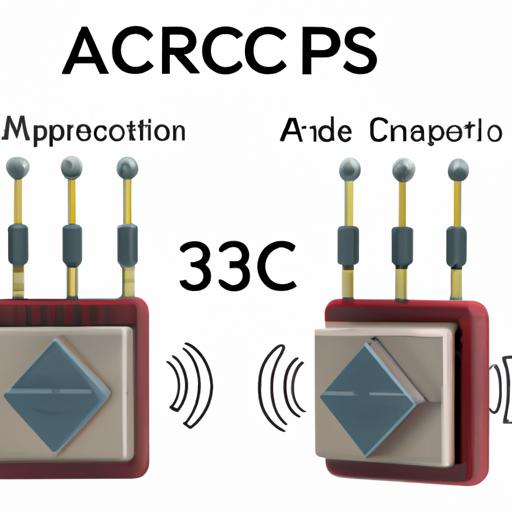
Application Development in Adjustable Inductors for CFR-25JB-52-1R2: Key Technologies and Success StoriesAdjustable inductors, such as the CFR-25JB-52-1R2, are integral components in a wide range of electronic applications, particularly in RF (radio frequency) circuits, power electronics, and signal processing. The development of applications utilizing adjustable inductors involves several key technologies and methodologies. Below are insights into these technologies and notable success stories.
Key Technologies1. Magnetic Core Materials2. Mechanical Adjustment Mechanisms3. Digital Control Systems4. Simulation and Modeling Tools5. Hybrid Technologies6. Miniaturization Techniques1. RF Communication Systems2. Power Supply Circuits3. Automotive Applications4. Consumer Electronics5. Telecommunications Success Stories ConclusionThe development of applications using adjustable inductors like the CFR-25JB-52-1R2 is propelled by advancements in materials, engineering, and digital technologies. Success stories across various industries underscore the versatility and significance of these components in enhancing performance, efficiency, and user experience in electronic systems. As technology continues to evolve, the role of adjustable inductors is expected to expand, paving the way for new innovations and applications in the future.
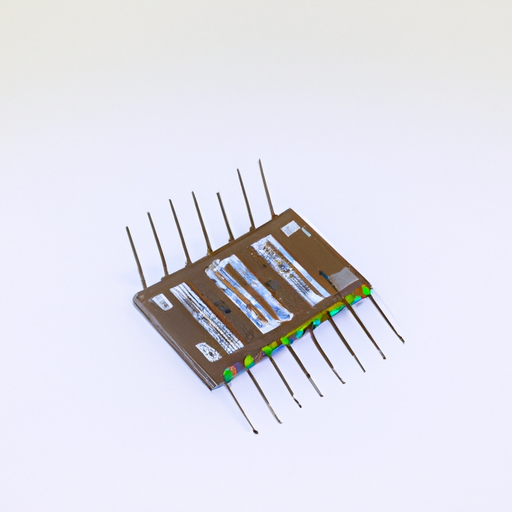
CFR-25JB-52-1M2 Fixed Inductors: Core Functional Technology and Application DevelopmentInductance Value: 25 µHInductance Value: 25 µHCurrent Rating: 1.2 ACurrent Rating: 1.2 ADC Resistance (DCR): Low resistance for efficient performanceDC Resistance (DCR): Low resistance for efficient performanceCore Material: Ferrite or iron powder, depending on the designCore Material: Ferrite or iron powder, depending on the designPackage Type: Typically surface mount or through-holePackage Type: Typically surface mount or through-holeTemperature Range: Suitable for various operating environmentsTemperature Range: Suitable for various operating environments Core Functional Technology1. Magnetic Core Design:2. Winding Techniques:3. Thermal Management:4. Shielding:1. Power Supply Filtering:2. RF Applications:3. Energy Storage in DC-DC Converters:4. Audio Equipment:5. Automotive Applications: Application Development Cases ConclusionThe CFR-25JB-52-1M2 fixed inductor represents significant advancements in inductor technology, delivering high performance across a diverse range of applications. Its design features, including low DCR, high inductance, and robust thermal stability, make it an ideal choice for modern electronic devices, from consumer electronics to automotive systems. As technology continues to evolve, the role of fixed inductors will remain crucial in ensuring efficient and reliable electronic performance, paving the way for innovative applications in the future.

Application Development in Silicon Capacitors for CFR-25JB-52-1K2: Key Technologies and Success StoriesWhile the CFR-25JB-52-1K2 is a specific type of resistor, the discussion around silicon capacitors can provide valuable insights into their integration and application in electronic systems, particularly in conjunction with resistive components like the CFR-25JB-52-1K2. Below, we explore key technologies in silicon capacitors and highlight success stories that demonstrate their impact across various industries.
Key Technologies in Silicon Capacitors1. Silicon-on-Insulator (SOI) Technology2. Micro-Electro-Mechanical Systems (MEMS) Capacitors3. High-k Dielectrics4. 3D Integration5. Flexible and Printed Electronics1. Consumer Electronics2. Automotive Applications3. Telecommunications4. Medical Devices5. Industrial Automation Success Stories ConclusionThe development of silicon capacitors has been driven by the demand for smaller, more efficient, and reliable components across various applications. Key technologies such as SOI, MEMS, high-k dielectrics, and 3D integration have significantly advanced the capabilities of silicon capacitors. Success stories from diverse industries underscore their versatility and importance in modern electronics. As technology continues to evolve, we can anticipate further innovations and applications for silicon capacitors, enhancing their role in conjunction with components like the CFR-25JB-52-1K2 in complex electronic systems.
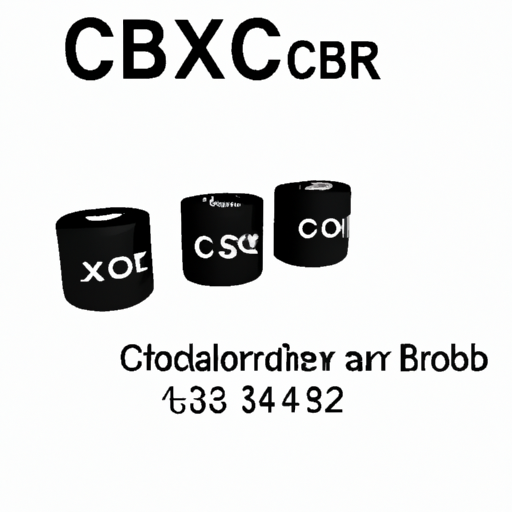
Overview of Niobium Oxide CapacitorsNiobium oxide capacitors, such as the CFR-50JB-52-1K2, are advanced electronic components that leverage the unique properties of niobium oxide to deliver high-performance capacitance solutions. These capacitors are characterized by their high capacitance density, excellent temperature stability, and low leakage current, making them suitable for a variety of demanding applications.
Core Functional Technologies1. High Capacitance Density2. Temperature Stability3. Voltage Tolerance4. Low Leakage Current5. Long Lifespan6. Electrolytic Properties1. Consumer Electronics2. Automotive Electronics3. Industrial Automation4. Telecommunications5. Renewable Energy Systems6. Medical Devices Application Development Cases ConclusionNiobium oxide capacitors, exemplified by the CFR-50JB-52-1K2, represent a significant advancement in capacitor technology, offering unique benefits that cater to a wide range of applications. Their high capacitance density, temperature stability, low leakage current, and long lifespan make them an effective choice for modern electronic designs, particularly in demanding environments. As technology continues to evolve, the role of niobium oxide capacitors is likely to expand, driving innovation across various industries and enhancing the performance of next-generation electronic devices.
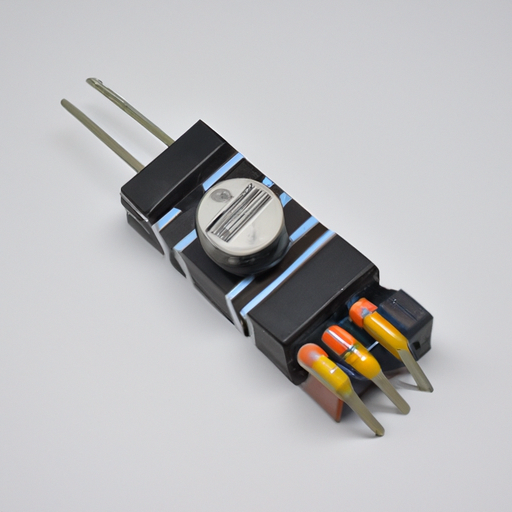
Core Functional Technology Articles on Trimmers and Variable Capacitors 1. **Understanding Trimmers and Their Applications**
- **Overview**: Trimmers are adjustable resistors that allow for fine-tuning of circuit parameters. They are critical in applications requiring precise calibration and adjustment.
- **Key Features**:
- **Compact Size**: Designed to fit into small spaces, making them ideal for compact electronic devices.
- **Low Power Consumption**: Efficient operation, contributing to the overall energy efficiency of devices.
- **Adjustable Resistance**: Users can modify resistance values to meet specific circuit requirements.
- **Applications**:
- **RF Circuit Tuning**: Essential for adjusting frequencies in communication devices, ensuring optimal signal reception and transmission.
- **Audio Equipment Gain Adjustment**: Used in amplifiers to fine-tune audio output for better sound quality.
- **Sensor Calibration**: Helps in calibrating sensors for accurate measurements in various applications. 2. **Variable Capacitors: Principles and Uses**
- **Overview**: Variable capacitors enable the adjustment of capacitance within a circuit, which is vital for tuning and filtering applications.
- **Key Features**:
- **Adjustable Capacitance**: Capacitance can be modified by altering the plate overlap or distance, allowing for precise control.
- **Dielectric Types**: Available in various materials, including air, ceramic, and plastic, each suited for different applications.
- **Applications**:
- **Radio Tuning**: Used in transmitters and receivers to select desired frequencies.
- **Oscillator and Filter Design**: Integral in creating stable oscillators and effective filters in electronic devices.
- **Timing Circuits**: Essential for phase-locked loops (PLLs) and other timing applications, ensuring accurate timing signals. Application Development Cases 1. **Tuning Circuits in RF Applications**
- **Case Study**: A telecommunications company developed a new RF module for mobile devices that required precise frequency tuning. By integrating trimmers, engineers achieved fine-tuning capabilities, enhancing signal clarity and reducing interference.
- **Outcome**: The incorporation of trimmers significantly improved the RF module's performance, leading to a better user experience and increased market competitiveness. 2. **Audio Equipment Calibration**
- **Case Study**: An audio equipment manufacturer utilized variable capacitors in their equalizer circuits, allowing users to adjust sound frequencies easily. The design featured a user-friendly interface for real-time adjustments.
- **Outcome**: The product garnered positive feedback for its sound quality and user control, resulting in increased sales and enhanced brand loyalty. 3. **Sensor Calibration in Industrial Applications**
- **Case Study**: A company specializing in industrial automation integrated trimmers into their sensor calibration systems. This allowed technicians to easily adjust sensor outputs to meet specific operational requirements.
- **Outcome**: The flexibility provided by trimmers reduced downtime during calibration processes and improved measurement accuracy, leading to enhanced operational efficiency. 4. **Tuning in Oscillator Circuits**
- **Case Study**: A startup focused on developing low-power IoT devices used variable capacitors in their oscillator circuits to achieve stable frequency generation. The design allowed for easy adjustments during the prototyping phase.
- **Outcome**: The ability to fine-tune the oscillators resulted in lower power consumption and extended battery life for the devices, making them more attractive to consumers. Conclusion
Trimmers and variable capacitors are integral components in modern electronics, facilitating precise adjustments and enhancing the performance of various applications. Their roles in RF circuits, audio equipment, sensor calibration, and oscillator designs highlight their versatility and significance in achieving optimal functionality in electronic devices. As technology advances, the demand for these components is expected to grow, driving further innovation and application development in the field.

Application Development in Mica and PTFE Capacitors for CFR-25JB-52-1R1: Key Technologies and Success StoriesMica and PTFE (Polytetrafluoroethylene) capacitors are essential components in high-performance electronic applications, particularly in telecommunications, aerospace, and medical devices. The CFR-25JB-52-1R1 is a specific capacitor model that exemplifies the advanced capabilities of these materials. Below is an overview of the key technologies and notable success stories associated with the application development of Mica and PTFE capacitors.
Key Technologies1. Material Properties2. Manufacturing Techniques3. Dielectric Constant Optimization: Engineers focus on optimizing the dielectric constant of the materials used in capacitors, which directly influences capacitance and overall performance. This optimization is crucial for applications requiring specific capacitance values. 4. Temperature and Voltage Ratings: The development of capacitors capable of operating effectively at high temperatures and voltages is critical for applications in aerospace, military, and industrial sectors. This ensures reliability in extreme conditions.
5. Miniaturization: Advances in manufacturing technology have enabled the miniaturization of capacitors without sacrificing performance. This is particularly important for compact electronic devices, where space is at a premium.
Success Stories1. Aerospace Applications: Mica capacitors have been successfully integrated into aerospace systems, such as radar and satellite communications. Their stability and reliability under extreme conditions make them indispensable in these applications, where failure is not an option.
2. Telecommunications: PTFE capacitors have gained traction in telecommunications infrastructure, especially in RF applications. Their low loss characteristics enhance signal integrity, making them ideal for high-frequency signal processing in base stations and communication devices.
3. Medical Devices: Both mica and PTFE capacitors are critical in medical devices, where precision and reliability are essential. For instance, they are used in imaging equipment and diagnostic devices, where their performance can significantly impact patient outcomes and safety.
4. Industrial Automation: In industrial settings, these capacitors are utilized in power electronics and motor drives. Their ability to handle high voltages and currents is crucial for efficient operation in automation systems, contributing to improved productivity and energy efficiency.
5. Consumer Electronics: The trend toward miniaturization has allowed mica and PTFE capacitors to be used in consumer electronics, such as smartphones and tablets. These devices require high-performance components that can fit into compact spaces without compromising functionality.
ConclusionThe development of Mica and PTFE capacitors, including models like the CFR-25JB-52-1R1, highlights the synergy between advanced materials science and engineering. Their applications span critical industries, underscoring their importance in modern technology. As innovation in materials and manufacturing processes continues, we can expect even more successful applications and advancements in the future, further solidifying the role of these capacitors in high-performance electronic systems.
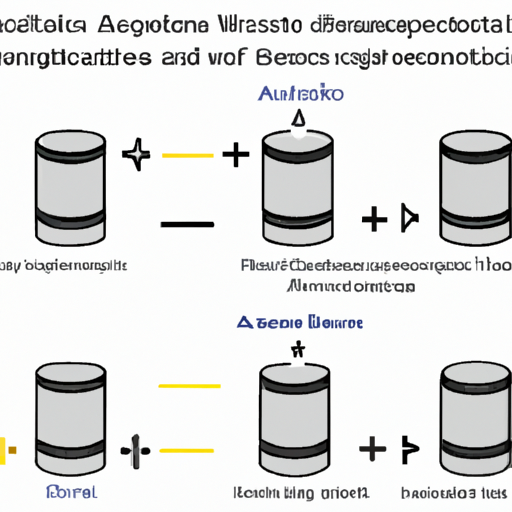
Application Development in Electric Double Layer Capacitors (EDLC) and Supercapacitors: CFR-50JB-52-1M1Electric Double Layer Capacitors (EDLCs), commonly referred to as supercapacitors, are pivotal in modern energy storage solutions. They combine the rapid charge and discharge capabilities of traditional capacitors with the energy storage capacity of batteries, making them ideal for various applications. The CFR-50JB-52-1M1 model exemplifies the advancements in supercapacitor technology. Below, we explore key technologies and notable success stories in the application development of EDLCs and supercapacitors.
Key Technologies1. Electrode Materials2. Electrolytes3. Hybrid Systems4. Energy Management Systems5. Manufacturing Techniques1. Electric Vehicles (EVs)2. Renewable Energy Storage3. Consumer Electronics4. Industrial Applications5. Public Transportation6. Wearable Technology Success Stories ConclusionThe development of Electric Double Layer Capacitors and supercapacitors, such as the CFR-50JB-52-1M1, is propelled by advancements in materials science, manufacturing techniques, and energy management systems. Their applications span diverse industries, from automotive to consumer electronics, highlighting their versatility and potential for future energy solutions. As technology continues to evolve, supercapacitors are poised to play an increasingly vital role in sustainable energy systems and high-performance applications, contributing to a more efficient and environmentally friendly energy landscape.
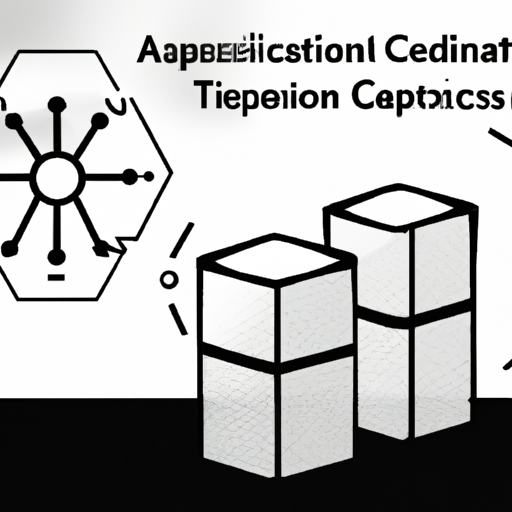
Application Development in Tantalum Capacitors for CFR-50JB-52-1K1: Key Technologies and Success StoriesTantalum capacitors, such as the CFR-50JB-52-1K1, are integral components in modern electronics due to their unique properties, including high capacitance density, temperature stability, and reliability. Below, we explore the key technologies that underpin their application development and highlight notable success stories across various industries.
Key Technologies1. High Capacitance Density 2. Temperature Stability 3. Low ESR (Equivalent Series Resistance) 4. Long Lifespan and Reliability 5. Advanced Manufacturing Techniques 6. Surface Mount Technology (SMT) 1. Consumer Electronics 2. Automotive Applications 3. Medical Devices 4. Telecommunications 5. Aerospace and Defense Success Stories ConclusionThe application development of tantalum capacitors like the CFR-50JB-52-1K1 is driven by their unique properties and the evolving needs of various industries. As technology continues to advance, the demand for high-performance capacitors is expected to grow, leading to further innovations and success stories in the field. The ongoing development of tantalum capacitors will likely play a pivotal role in shaping the future of electronics, enabling more compact, efficient, and reliable devices across a wide range of applications.
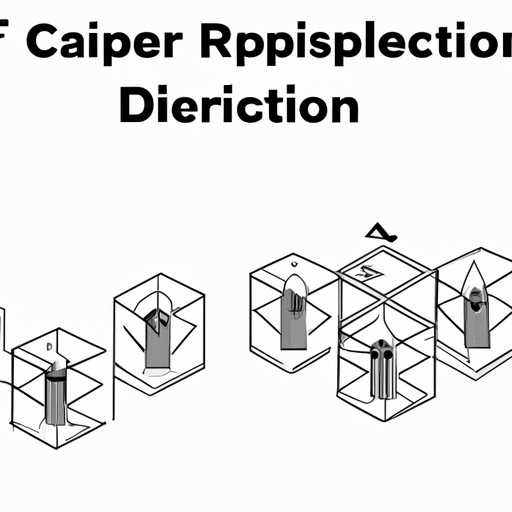
Application Development in Capacitor Networks and Arrays for CFR-50JB-52-1R1: Key Technologies and Success StoriesCapacitor networks and arrays are integral to a wide range of electronic applications, particularly in power electronics, signal processing, and energy storage systems. The CFR-50JB-52-1R1 is a specific type of capacitor that exemplifies the advancements in capacitor technology. This document explores key technologies related to capacitor networks and arrays, along with notable success stories that demonstrate their real-world applications.
Key Technologies in Capacitor Networks and Arrays1. Capacitor Types2. Network Topologies3. Simulation and Modeling Tools4. Energy Storage Systems5. Power Factor Correction6. Integrated Capacitor Arrays1. Renewable Energy Integration2. Electric Vehicles (EVs)3. Consumer Electronics4. Telecommunications5. Industrial Automation Success Stories ConclusionCapacitor networks and arrays, including components like the CFR-50JB-52-1R1, are essential in modern electronic applications. Their versatility in energy storage, power management, and signal processing makes them indispensable across various industries. As technology continues to advance, the development of more efficient and compact capacitor solutions will further enhance their applications, paving the way for innovative solutions in energy management, consumer electronics, and beyond. The ongoing evolution in capacitor technology promises to drive future advancements in electronic design and application development.
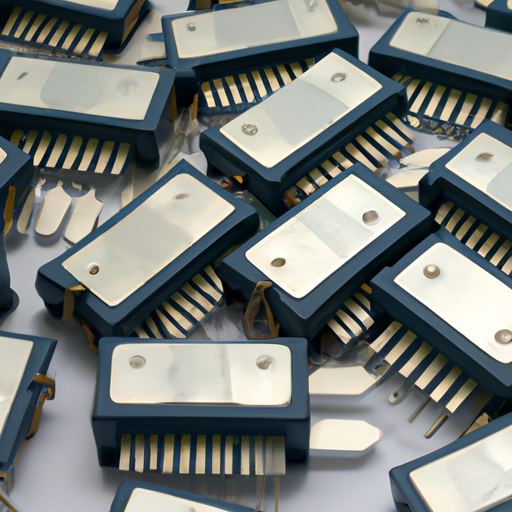
Application Development in Chassis Mount Resistors for CFR-25JB-52-1R: Key Technologies and Success StoriesChassis mount resistors, such as the CFR-25JB-52-1R, play a critical role in various electronic applications by providing reliable resistance in circuits. The development and application of these resistors involve several key technologies and methodologies. Below is an overview of the key technologies and some success stories related to chassis mount resistors like the CFR-25JB-52-1R.
Key Technologies1. Material Science2. Thermal Management3. Automated Manufacturing4. Simulation and Modeling5. Quality Assurance1. Consumer Electronics2. Automotive Applications3. Industrial Automation4. Telecommunications5. Medical Devices Success Stories ConclusionThe development and application of chassis mount resistors like the CFR-25JB-52-1R involve a combination of advanced materials, manufacturing technologies, and rigorous testing protocols. Their successful integration into various industries, from consumer electronics to automotive and medical devices, highlights their versatility and importance in modern electronic design. As technology continues to evolve, the role of these resistors will likely expand, driven by the demand for more efficient and reliable electronic systems. The ongoing advancements in material science, thermal management, and automated manufacturing will further enhance the capabilities and applications of chassis mount resistors in the future.

Developing applications for accessories related to the CFR-50JB-52-1M, a specific model of device or equipment, involves leveraging a variety of key technologies and methodologies. While the exact specifications of the CFR-50JB-52-1M are not detailed, we can explore the general landscape of accessory application development, highlighting relevant technologies and notable success stories.
Key Technologies1. Embedded Systems Development2. Communication Protocols3. User Interface Development4. Cloud Integration5. Power Management6. Security1. Smart Home Accessories2. Wearable Health Devices3. Industrial IoT Solutions4. Automotive Accessories5. Gaming Accessories Success Stories ConclusionThe development of applications for accessories related to devices like the CFR-50JB-52-1M involves a multifaceted approach, incorporating embedded systems, communication technologies, user interface design, cloud integration, and security measures. By leveraging these technologies, developers can create innovative solutions that enhance user experience and functionality. The success stories across various industries illustrate the potential for impactful applications in this space, paving the way for future advancements in accessory development.

Application Development in RF and Wireless for CFR-25JB-52-1K: Key Technologies and Success StoriesApplication development in RF (Radio Frequency) and wireless technologies, particularly in the context of CFR-25JB-52-1K, encompasses a variety of key technologies and methodologies that facilitate effective communication and data transfer across numerous applications. CFR-25JB-52-1K likely refers to a specific standard or specification relevant to RF components or systems, which may include regulations or guidelines for wireless communication. Below is an overview of key technologies and notable success stories in RF and wireless application development.
Key Technologies in RF and Wireless Development1. Modulation Techniques2. Antenna Design3. RF Components4. Wireless Standards5. Software-Defined Radio (SDR)6. IoT (Internet of Things)7. Network Protocols1. Smart Cities2. Telemedicine3. Connected Vehicles4. Industrial Automation5. Smart Agriculture6. Consumer Electronics Success Stories in RF and Wireless Application Development ConclusionThe development of RF and wireless applications, particularly in the context of standards like CFR-25JB-52-1K, is propelled by advancements in modulation techniques, antenna design, and the integration of IoT technologies. The success stories across various sectors illustrate the transformative impact of these technologies, enhancing efficiency, connectivity, and user experience. As the demand for wireless communication continues to rise, ongoing innovation in RF technologies will be pivotal in shaping the future of communication and connectivity.
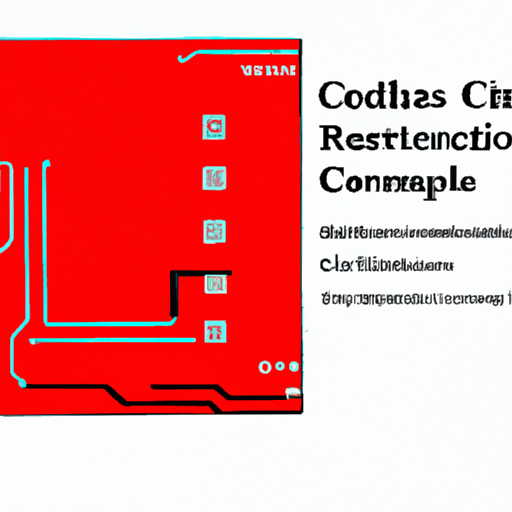
Overview of Integrated Circuits (ICs)Integrated Circuits (ICs) are essential components in modern electronics, encapsulating multiple electronic functions into a single chip. They have revolutionized the way devices operate, enabling miniaturization, increased performance, and reduced costs. The CFR-50JB-52-1K, while not widely recognized, represents a specific application or type of IC that contributes to the broader landscape of integrated circuit technology.
Core Functional Technologies of Integrated Circuits (ICs)1. Digital Logic Circuits2. Analog Circuits3. Mixed-Signal ICs4. Power Management ICs5. RF and Communication ICs6. Memory ICs1. Consumer Electronics2. Automotive Applications3. Industrial Automation4. Healthcare Devices5. Telecommunications Application Development Cases ConclusionIntegrated circuits are pivotal in modern technology, enabling a wide range of applications across various industries. The CFR-50JB-52-1K, while specific, likely falls within one of these broader categories of ICs, contributing to the functionality and efficiency of electronic devices. As technology continues to evolve, the development of more advanced ICs will further enhance capabilities in consumer electronics, automotive systems, industrial automation, healthcare, and telecommunications. The ongoing innovation in IC technology promises to drive future advancements, making devices smarter, more efficient, and more capable.

Application Development in Sensors and Transducers for MM74HC4050N: Key Technologies and Success StoriesThe MM74HC4050N is a hex buffer/driver that leverages high-speed CMOS technology, making it an essential component in various sensor and transducer applications. Its primary functions include signal buffering and level shifting, which are critical for interfacing different voltage levels in sensor systems. Below, we explore key technologies and notable success stories that highlight the application development using the MM74HC4050N.
Key Technologies1. Signal Conditioning2. Level Shifting3. Noise Immunity4. Multiple Channels5. Integration with Microcontrollers1. Environmental Monitoring Systems2. Industrial Automation3. Smart Home Devices4. Wearable Technology5. Robotics Success Stories ConclusionThe MM74HC4050N is a versatile component that plays a crucial role in the development of applications involving sensors and transducers. Its capabilities in buffering and level shifting signals make it an essential part of many successful projects across various industries, including environmental monitoring, industrial automation, smart home technology, wearable devices, and robotics. As technology continues to evolve, the integration of the MM74HC4050N in sensor applications is expected to expand, leading to more innovative solutions and improved performance across diverse fields. The ongoing advancements in sensor technology and the increasing demand for smart systems will likely further enhance the relevance of the MM74HC4050N in future applications.